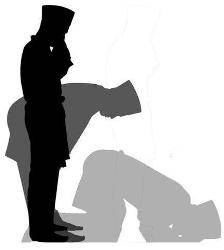Common mistakes made during Jumu'ah
17/08/2011| IslamWeb
Many of us go to the Masjid on Friday as a matter of tradition and habit, without making the intention of worship, whereas an intention is a precondition for the Jumu'ah prayer (the weekly congregational prayer held in Masjids every Friday) and all other acts of worship. Increasingly, we see people staying up late, which causes them to miss Fajr prayer (Dawn Prayer), leaving them to start their day having committed a great major sin, while the Prophet, ![]() , said: “The best prayer in the sight of Allah is the congregational Fajr prayer on Friday."
, said: “The best prayer in the sight of Allah is the congregational Fajr prayer on Friday."
Slighting the attendance of the Jumu'ah sermon; some people arrive during the sermon and others arrive while people are praying.
Abandoning or slighting praying the Jumu'ah prayer. The Prophet ![]() said: “Let those who abandon attending the Jumu'ah prayer refrain from doing so, or Allah will seal their hearts and they will become heedless."[Muslim].
said: “Let those who abandon attending the Jumu'ah prayer refrain from doing so, or Allah will seal their hearts and they will become heedless."[Muslim].
Neglecting bathing, perfuming, wearing ones best clothing and using the Siwak (teeth cleaner).
Shopping or engaging in trade after the Athan (call for prayer) has been called for the Jumu'ah sermon, while Allah the Almighty Says (what means): {O you who have believed, when [the adhan] is called for the prayer on the day of Jumu'ah [Friday], then proceed to the remembrance of Allah and leave trade. That is better for you, if you only knew} [Quran, 62:9].Ibn 'Abbas, ![]() said, "It is forbidden to buy or sell at that time."
said, "It is forbidden to buy or sell at that time."
Some people commit certain sins while thinking they are doing something praiseworthy, such as those who shave their beards on Friday because it looks "cleaner ".
Sitting in the courtyard of the mosque while there is space for inside.
Making people move and sitting in their place. Jabir ![]() narrated that the Prophet,
narrated that the Prophet, ![]() , said: "Let no one move his brother on the day of Jumu'ah and sit in his place, instead he should say: 'make space.'"[Muslim].
, said: "Let no one move his brother on the day of Jumu'ah and sit in his place, instead he should say: 'make space.'"[Muslim].
Passing over people's shoulders, forcefully separating people in order to sit between them, and harming people by forcing them into cramped spaces. The Prophet, ![]() said to a man who was passing over people's shoulders during the Jumu'ah sermon: "Sit down, because you have harmed people."
said to a man who was passing over people's shoulders during the Jumu'ah sermon: "Sit down, because you have harmed people."
Talking or reciting the Quran in a loud voice and thereby disturbing others who are praying or reciting the Quran.
Leaving the mosque after the Athan has been called without a valid excuse.
Not paying attention to what the Khateeb is saying during the sermon.
Praying two Rak'ah (units of prayer) between the two sermons, whereas the Sunnah is to supplicate and seek forgiveness until the Imam stands up to deliver the second sermon.
Unnecessary movements during prayer, hastening to leave the mosque immediately after praying and pushing people at the door to leave without finishing the prescribed supplications after praying.
Making the sermon long and shortening the prayer.
'Ammar ![]() narrated that he heard the Prophet,
narrated that he heard the Prophet, ![]() saying: “The lengthening of the prayer (by the Imam) and the shortness of the Khutbah (sermon) is the sign of his understanding (of faith), so prolong your prayers and shorten your speech; indeed some khutbahs have the effect of magic (i.e., they are very powerful).” [Muslim].
saying: “The lengthening of the prayer (by the Imam) and the shortness of the Khutbah (sermon) is the sign of his understanding (of faith), so prolong your prayers and shorten your speech; indeed some khutbahs have the effect of magic (i.e., they are very powerful).” [Muslim].
Not being well prepared for the sermon and not choosing the correct topic that addresses people's concerns.
Having numerous linguistic errors in the Khutbah.
Using narrations that are weak or fabricated, and quoting disliked opinions without denouncing them.
Limiting the second sermon to contain supplications only.
Not using any verses from the Quran during the sermon, which opposes the Sunnah (Prophetic traditions).
Failing to deliver a stirring sermon, while it is reported by Jabir ![]() , when he described the Prophet,
, when he described the Prophet, ![]() , he said, "Whenever the Prophet
, he said, "Whenever the Prophet ![]() used to deliver the Jumu'ah sermon, he would raise his voice; his eyes would become red and he would become excited as though he was warning people against a conquering army which was just about to attack them." [Muslim]
used to deliver the Jumu'ah sermon, he would raise his voice; his eyes would become red and he would become excited as though he was warning people against a conquering army which was just about to attack them." [Muslim]

